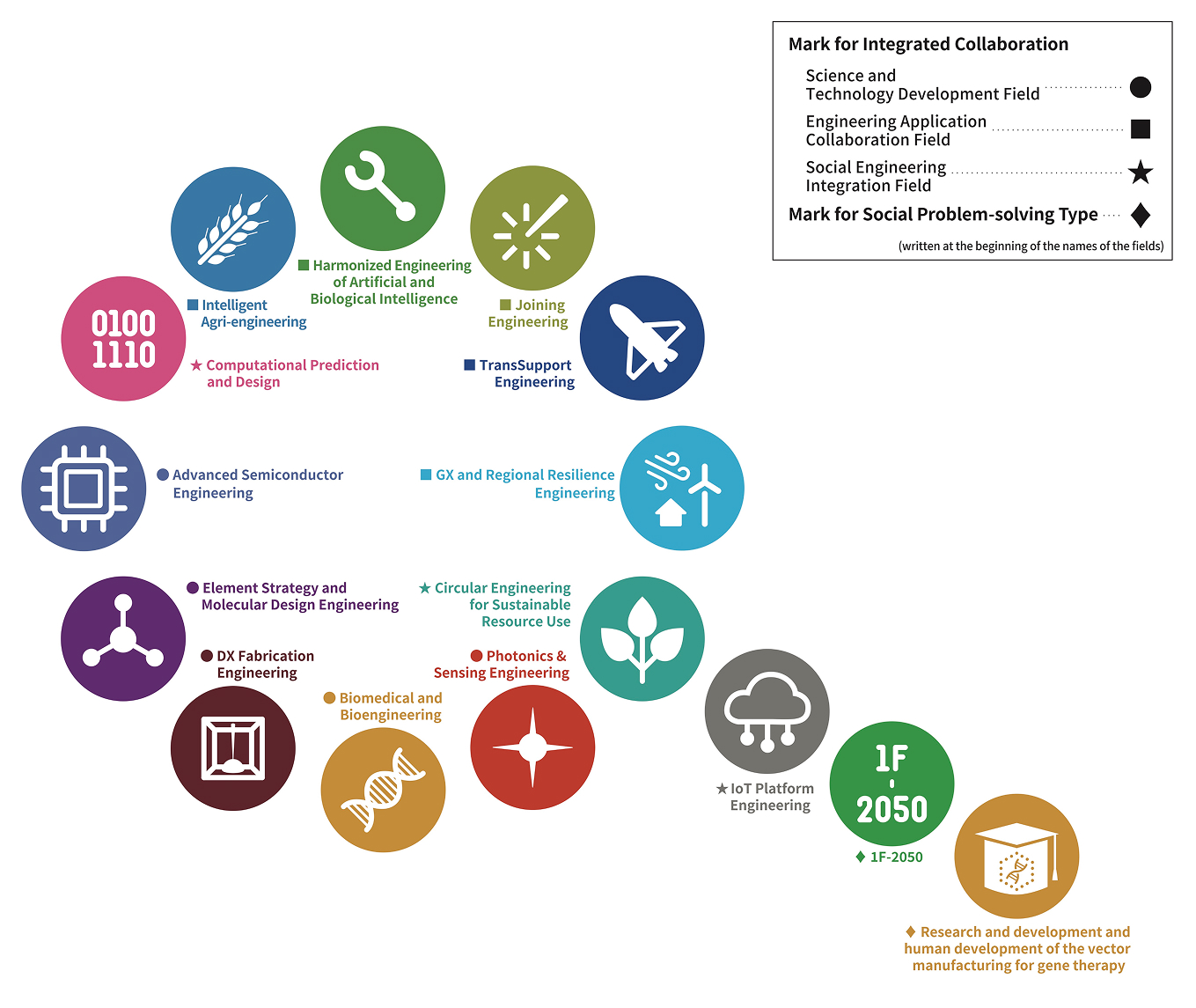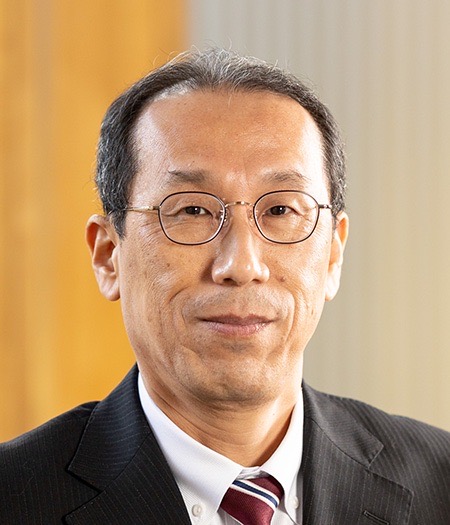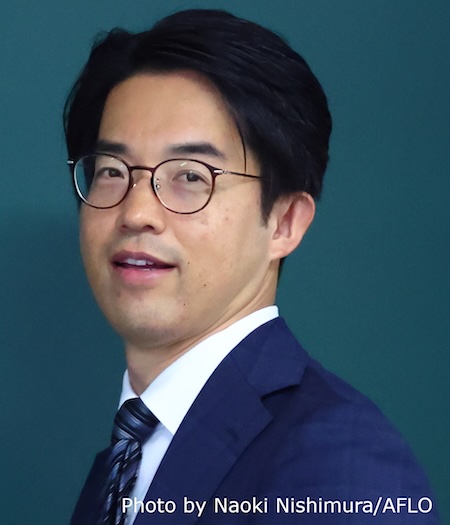Incubation Division
Based on the various social needs and issues, this division promotes research activities and academic exchanges by group through the integration of fields and collaboration between industry, academia, and government with the aim of the exploration and development of new academic areas and new fields of research and development. The division is composed of the following types of groups: Integrated Collaboration type and Social Problem-solving type.
In Integrated Collaboration, 13 of the interdisciplinary groups are currently founded and actively seeking members. They are positively carrying out activities, such as holding an open forum, exploring joint research beyond divisions, and collaborating between industry and academia, together with researchers in other divisions, departments, and institutes.
13 research groups are shown and organized into three fields of Science and Technology Development, Engineering Application Collaboration, and Social Engineering Integration according to the characteristics of the research.
In the Social Problem-solving Type, groups conduct research and analysis on issues demanded by society and promote activities to clarify issues. Currently 2 groups are conducting research activities.
The logo mark below has the icons of the 13 Integrated Collaboration Type groups and the 2 Social Problem-solving Type groups arranged to resemble the outline of a magnifying glass.
The entire magnifying glass expresses the concept of “Exploring for the Future Society”.

Integrated Collaboration
-
Photonics & Sensing Engineering
The diffusion of photonics technology will change people’s lives for the better. Under the banner of “photonics transformation” (PX), we are tackling the challenge of solving some of the problems facing modern society.

-
Biomedical and Bioengineering
The purpose of this group is to expand the networks of researchers in the fields of medicine, drug discovery, health, and biotechnology, and increase their activity on a worldwide scale.

-
DX Fabrication Engineering
We are implementing large-scale projects to accelerate state-of-the-art cross-disciplinary manufacturing based on optimized designs achieved through the fusion of cyber and physical spaces.

-
Element Strategy and Molecular Design Engineering
We design atoms, molecules, and their aggregates to create highly intelligent, high-value-added materials and chemical reactions based on element strategies.

-
Advanced Semiconductor Engineering
Semiconductor industry is becoming more and more important. Through cutting-edge research and development that covers materials, processes, devices, and circuit design, we are committed to cultivating young researchers.

-
Intelligent Agri-engineering
We are implementing activities that truly contribute to sustainable development goals (SDGs) through synergistic cross-fertilization between our achievements in bioengineering and international exchange and the collective intelligence of the Graduate School of Engineering.

-
Harmonized Engineering of Artificial and Biological Intelligence
We explore the sources of “knowledge” considered in biology, engineering, and philosophy, to construct a theory for the design of intelligent artifacts.

-
Joining Engineering
The field of Joining Engineering promotes scientific research, applied research, industry-government-academia collaboration, and human resource development in the field of welding and joining, based on integrated joining science.

-
TransSupport Engineering
To address the new requirements for carbon neutrality and the “new normal” world, we will implement rich and sustainable mobility systems for practical applications.

-
GX・地域レジリエンス工学
We combine knowledge of engineering technology and natural sciences and create environments for integrated analyses, to propose ways of building communities that are resilient to climate change and fast-changing social circumstances.

-
Computational Prediction and Design
Through the advancement, fusion, and creation of simulation technologies, we aim to shape a future society in which people can live a dignified, fulfilling, humane life.

-
Circular Engineering for Sustainable Resource Use
Our aim is to work toward a low-carbon, sustainable future by developing technologies and systems that utilize natural resources and energy exhaustively and effectively.

-
IoT Platform Engineering
We promote R&D related to IoT edge nodes, a technology at the vanguard of data acquisition, to promote adaptation to the emerging era of sophisticated integration between the real world and cyberspace.

Social Problem-solving Type
-
1F-2050
The “1F-2050” group engages in wide-ranging discussions and investigations of energy-related issues, with a focus on the Fukushima Daiichi Nuclear Power Plant (1F).

-
Research and development and human development of the vector manufacturing for gene therapy
Together with experts in medicine and pharmaceuticals, we work to conduct research and train specialists in the manufacturing of vectors for gene therapy and other applications, making full use of biotechnology.




